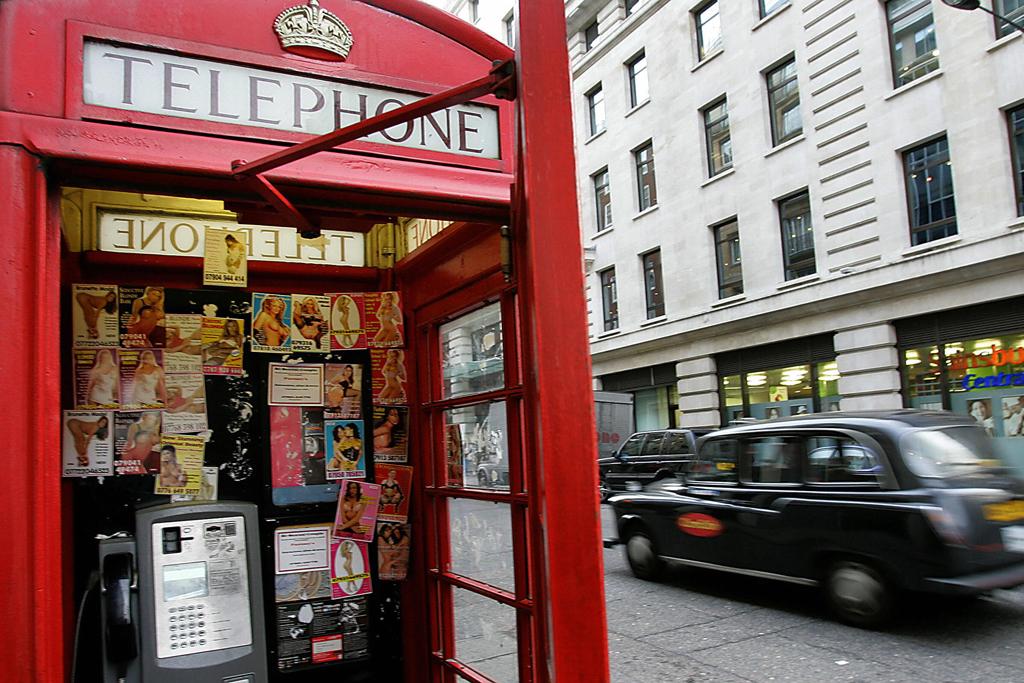London: Olympics crackdown on sex workers
London sex workers claim that the police have been cleaning up the streets and closing brothels ahead of the Olympic games, and advocacy groups say such actions could put the sex workers at risk.
Sex workers in brothels near the London Olympics stadium say they have been cleared from the streets in preparation for the games, according to Agence France Presse.
According to a study by a local councilor, nearly 80 brothels have been closed in the last 18 months.
Georgina Perry, in charge of Open Doors, a government project supporting east London prostitutes, said, "For the last two years we've seen a real increase in police activity in relation to sex work in the Olympic host boroughs."
She added, "Some of the women who sell sex have experienced so many brothel closures that they are now working on the street, and that is a much less safe place," according to AFP.
Stricter bail conditions and the threat of "anti-social behavior orders" sent many of the sex workers underground, according to British newspaper The Independent. That in turn puts them at risk and disrupts their contact with health workers.
Prostitution is legal in the UK, but operating brothels is not, the AFP noted.
More on GlobalPost: The Torch, or How I Learned to Stop Worrying and Love the London Olympics
In June, the famous author Brooke Magnanti, known by her alias, Belle de Jour, backed the group Stop the Arrests, which wrote a letter to the mayor of London, according to the Guardian.
The letter read, "[Raids and closures] create a climate of fear among workers, leaving them less likely to report crimes against them and more vulnerable to abuse and exploitation. It is an inadequate response to sex work and to trafficking."
In January 2010, Tessa Jowell, then Minister for the Olympics under the Labor government, told members of parliament, "Major sporting events can be a magnet for the global sex and trafficking industry; this is wholly unacceptable. I am determined that traffickers will not exploit London 2012," according to the BBC.
The BBC noted that such warnings of trafficking are common ahead of major sporting events such as the Olympics and the World Cup, but were largely unsubstantiated in 2004 in Athens and in 2006 at the German World Cup.
More on GlobalPost: Londoners fume over traffic measures for Olympic games
However, the practice of rounding up prostitutes before games is one that has been seen before in Beijing. Prostitution is illegal in China and the government cracked down on prostitution ahead of and during the games to maintain a clean image.
According to AFP, the crackdown led to many notorious bars and prostitution centers in Beijing being raided and boarded up during the games.
On the other hand, during the 2010 Winter Olympic Games in Vancouver, sex workers were largely left alone, though business was slow, according to The New York Daily News, which cited the executive director of Prostitution Alternatives Counseling & Education Society (PACE).
Like in the UK, prostitution is legal in Canada, but running a brothel is not.
The advocacy group, PACE, actually held training sessions for sex workers ahead of the 2010 games, in order to inform them of their rights and to train them to handle the influx of media, according to CBC.
"We just want our members to feel safe in the neighborhood in which they live and safe to work in the neighborhood in which they live," said PACE spokeswoman Kerry Porth.
The story you just read is accessible and free to all because thousands of listeners and readers contribute to our nonprofit newsroom. We go deep to bring you the human-centered international reporting that you know you can trust. To do this work and to do it well, we rely on the support of our listeners. If you appreciated our coverage this year, if there was a story that made you pause or a song that moved you, would you consider making a gift to sustain our work through 2024 and beyond?
